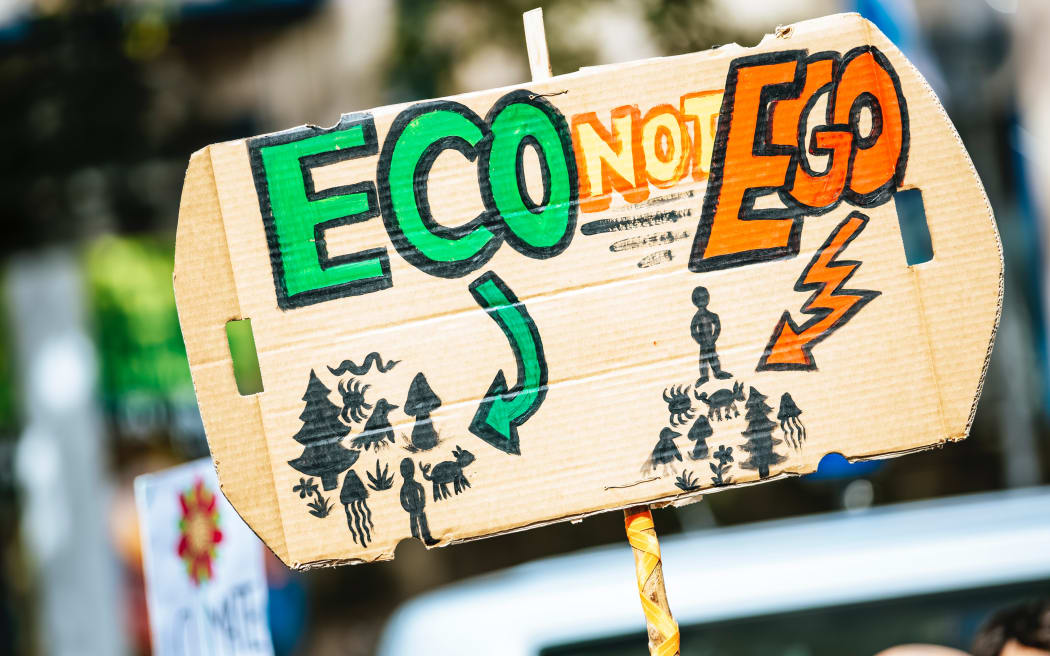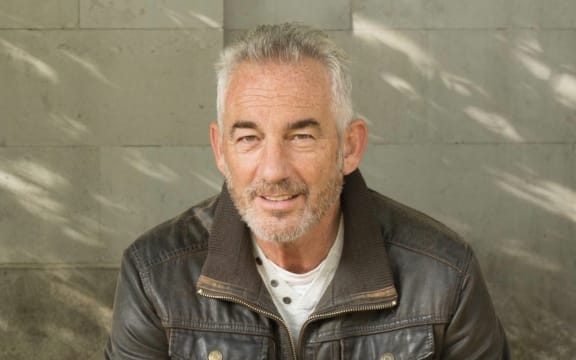
Photo: Markus Spiske for Unsplash
More is not always better, says polymath playwright, scientist and philosopher Professor Tim Jackson.
While we need less growth to put less demand on the planet's resources and slow down climate change, Jackson says we need more art, more plays and works of fiction to bring to both sides of that argument to life.
“You have to burst out of the rational cage and you have to begin to think what's possible, what could it be like, what would we like it to be like, what do we want it to be like. I think art is very good at that. It's a place where we can engage in a vision for the future, we can think about a different kind of world and we can think about it outside the confines of all the rational thinking that we're trained into using to address these problems. We can think in a different way.”
Jackson, director of the Centre for the Understanding of Sustainable Prosperity at the University of Surrey, might just be the man to bring these two worlds together.
In New Zealand as a guest of the British Council, he told Jesse Mulligan that embracing both sides of his brain had enabled him to think more creatively about problems facing the world.
“The right brain for me has been really important, partly as a sense of relief from all that logical, rational, intellectual stuff. I think it's a really crucial underpinning for doing the left brain stuff well, to have a place where you can escape from it, where you can be creative, where you can think more in human terms than in terms of equations and formulas.”

Professor Tim Jackson Photo: Fernando Manoso-Borgas
Jackson had completed a PhD “that was somewhere between physics and philosophy” but he’d also started working as a playwright and successfully sold a play to the BBC. The meagre payment he received made him realise he needed to find more work to sustain himself. He was piecing together a living through writing and waiting on tables when the Chernobyl nuclear disaster occurred in 1986.
“I walked into the London offices of Greenpeace the next day basically and said, ‘look, what can you do with someone who's got some sort of skills in physics and mathematics and philosophy?’, and they set me working on the economics of renewable energy, so something a bit more benign than nuclear power. That was it, almost overnight I became an accidental economist.”
Then, and now, writing plays are a chance for him to “think more freely” about his work – as a scientist or as a sustainability professor - and consider it from different angles, he says.
“I would use the plays to explore the issues in a way that I couldn't as a scientist, and then sometimes… I think there are links with the sort of ways in which your own life changes and that's definitely something you draw on as a writer.”
Jackson has had a lot of attention globally for his books that call out consumerism and the relentless pursuit of perpetual economic growth. He says perpetual growth – a mantra beloved by politicians – is an unrealistic and unhelpful goal because the planet isn’t getting any bigger.
“This idea that we can go on having more and more, and growing and growing our economies, it's fundamentally at odds with the finite nature of the planet in a way that interestingly, kids understand and they understand better sometimes than economists and politicians do.”
We need to shift our thinking about how we measure success, he says. The classic yardstick of gross domestic product (GDP) only measures the “busyness” of the economy and isn’t helpful.
“It’s easy to measure. But actually, you know, we've known for quite a long time that it's a very limited measure of what progress really is.”
In 1968, Robert Kennedy made a speech in his ill-fated presidential campaign that pointed out all the flaws in using GDP as a measure of progress, such as destruction of rainforests, pollution of the oceans and the creation of the arms race.
“He ended up saying, ‘it measures everything, in short, except that which makes life worthwhile. So it is a very simple measure, but it's not a very good one.”
Jackson says art is an important weapon against climate change and other seemingly intractable problems, because it helps people to think differently.
“The left-brain logical part of us is a very dry place to live and it's really useful for analysing problems but it's not so good when it comes to the creative work that we have to do."
Art, particularly drama, performs another important function, Jackson says, in that it embraces conflict.
“I often thought when I was working as an environmental activist that we have this tendency to avoid conflict, to flatten conflict’s landscape.
“Drama is a kind of journey where the protagonist sets out in one direction and then immediately gets sideswiped by an antagonist who wants something different. And then you go through this sort of process of conflict and reversal and the final battle before the journey home towards resolution. So drama has this sense of conflict, of resolution through conflict that activism sometimes tends not to have.
“That's a function that art can do. It can bring that sense of resolution through conflict, rather than this dry scientific pursuit of progress through truth. Not that the truth isn't important, but the truth is much more complicated. Drama teaches us that.”
Jackson says we need to think about prosperity in a new way that’s not about money.
“When life is going well, then we think of ourselves as prosperous in very broad terms, but we've cashed that out almost literally in terms of wealth.
“There was a very interesting lesson from the pandemic, which was that there's no wealth really without health.
“Health isn't about having more and more, it's about a point of balance.”
This framework requires attention to our own health and that of others, he says
“If prosperity is health instead of wealth, the economy should be about care. And that gives us a whole different way of thinking about the construction of the economy. And unfortunately, it's one that's totally in conflict with our ethic of efficiency and profit maximisation and the speed of throughput. And so capitalism, it turns out, doesn't do care very well.
“Thinking about the economy through the lens of care allows us to think about each other, our relationships with each other, the strength of our communities, the importance of addressing inequality, the investment in our healthcare systems, the investments in social care, it allows us to think about the economy from first principles, from that simple idea that without health there is no wealth.”

